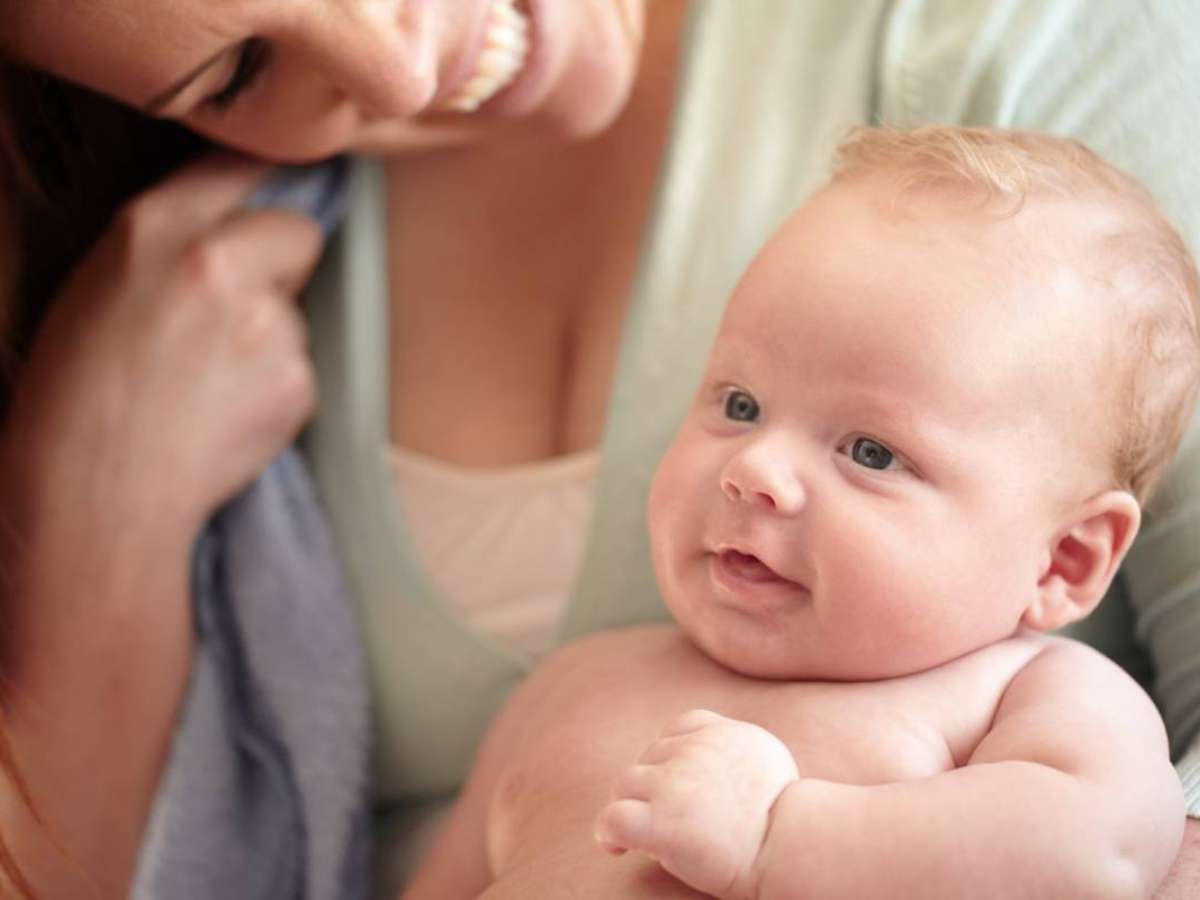Many people (including pregnant women) have some misconceptions about pregnancy that make them sick with worry and unable to truly enjoy the miracle of pregnancy.
Don’t be misled.
To help you prepare for the wonderful journey that this life experience is, here are 6 pregnancy myths that I think far too many pregnant women believe.
Myth #1: You can prevent stretch marks during pregnancy.
No matter how well you take care of your skin, there’s a good chance you’ll get stretch marks during your pregnancy.
About 90% of women will get them sometime after their sixth or seventh month of pregnancy, according to the American Academy of Dermatology. If your mother had stretch marks, then you’re more likely to have them too, since genetics plays a role. Source
Some women end up with fewer stretch marks or have the kind that are so light that it is virtually impossible to see them — but, chances are, they’re there.
Whether you’ll end up with obvious stretch marks or not depends mostly on genetics. The other factor is how quickly you gain weight during your pregnancy (and subsequently how quickly you lose weight after your pregnancy). The sudden stretching of the skin as you’re gaining weight (and sudden shrinkage after childbirth) lends itself to stretch marks.
If you, like me, are fortunate enough to end up with stretch marks, wear them with pride. You earned them and they are a small price to pay for having a healthy baby!
Myth #2: You can’t take baths during pregnancy.
As much as I love hot baths, I was afraid I had to avoid them during pregnancy.
Contrary to popular belief, you can take hot baths during your pregnancy.
You just have to steer clear of jacuzzis, saunas, and anything that will raise your body temperature above 102 degrees F — because it can harm your growing baby.
Myth #3: You should eat for two during pregnancy.
While you may feel hungry enough to eat a horse at times, don’t overdo it.
Pregnant women only need 300 extra calories per day.
If you eat too much, you could end up with a lot of extra weight that you’ll have trouble losing later on. You’ll also increase your chances of having a bigger baby.
Not only can overeating make it harder to lose the excess weight after delivery, but you’re also at increased risk during pregnancy for gestational diabetes and high blood pressure, which is a symptom of preeclampsia. Source
I always felt hungry — so much so, that I started eating whenever I felt like it. By the time I was weighed at the start of my second trimester, I had already packed on more pounds than was considered healthy.
One thing I learned: hunger can also be a sign of dehydration. So drink lots of water and fluids to help keep your hunger pains at bay.
Myth #4: You can’t own cats during pregnancy.
Many women believe they should avoid cats when they become pregnant.
Believe it or not, you can actually pet, feed, and play with cats!
You should just avoid coming in contact with litter boxes and cat feces because they contain toxins that can increase your risk of toxoplasmosis.
Toxoplasmosis is a serious condition that can lead to complications with your pregnancy, such as birth defects and stillbirth.
Here’s a great example of a mom who kept her cats and the ways she protected herself from toxoplasmosis while she was pregnant.
Myth #5: You can’t eat fish during pregnancy.
There is an old wives tale that you shouldn’t consume fish while you’re pregnant.
The truth is you can eat fish — you just have to be careful about the kind of fish you eat.
Sushi, salmon, and mackerel are all safe to eat, as long as they are raised in fresh water.
Fish that is raised in any other types of water may contain high levels of mercury — which is toxic to you and your baby.
The FDA recommends eating 8 to 12 ounces of fish low in mercury per week. That amounts to about 2 to 3 servings of fish per week, which can be eaten in place of other types of protein. Make sure to choose a variety of fish lower in mercury — such as salmon, tilapia, shrimp, tuna (canned light), cod, and catfish. Source
Myth #6: You don’t need prenatal vitamins during pregnancy.
Prenatal vitamins are vitally important for you and your unborn child.
Any nutrients that are needed for the growth and development of your unborn baby are taken from your own body’s reserves.
So if you’re feeling unusually tired, irritable, fatigued or out of sorts — like I was — start taking your vitamins. And get your iron levels checked.
My iron levels were so low that it was no wonder I constantly felt like I had been hit by a bus.
Some women who suffer from extreme symptoms of pregnancy actually feel better after taking an iron supplement, in addition to the prenatal vitamins.
Prenatal vitamins typically contain more folic acid and iron than do standard adult multivitamins. Folic acid helps prevent neural tube defects. These defects are serious abnormalities of the brain and spinal cord. Iron supports the baby’s growth and development. Iron also helps prevent anemia, a condition in which blood lacks adequate healthy red blood cells. In addition, some research suggests that prenatal vitamins decrease the risk of having a baby who is small for his or her gestational age. Source
The Bottom Line…
Don’t be so quick to believe the first thing you hear.
Unfortunately, pregnancy myths — like the ones above — only cause you to worry and stress more about your pregnancy.
Take it from me, there are plenty of other things you’ll worry about as your pregnancy progresses. So if you’re unsure about something you’ve heard about pregnancy, ask your doctor and do some research to get the facts.




